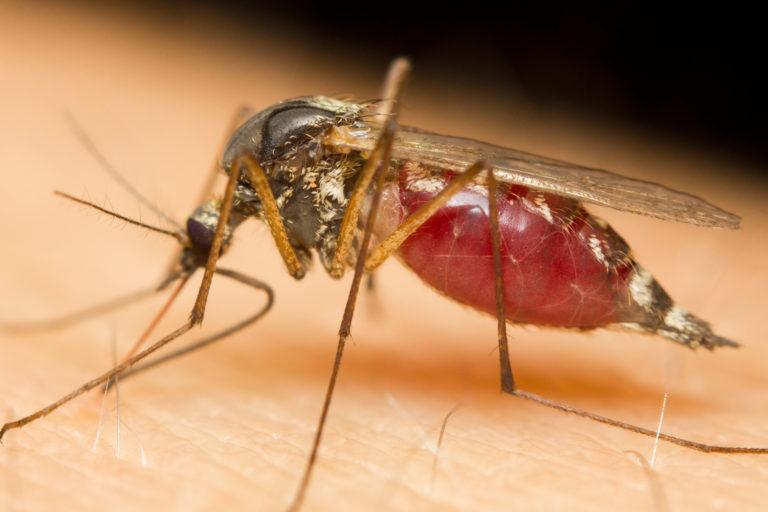
Mosquito control is often thought of as a community problem, but there are actually many things individuals can do to get rid of mosquitoes, or at least make living with them tolerable. When confronted with an pest, most people first turn to poisons. When I’ve got phantom mosquitoes buzzing in my ear at night, stealing both blood and sleep, I understand this impulse. But poisons, residual yard sprays, and bug bombs don’t work for private mosquito control, and may even increase their numbers. Insecticides are very unspecific; they kill as many beneficial insects and mosquito predators as they do mosquitoes. They are also toxic to humans and/or pets.
You’ll find below how to get rid of mosquitoes using the least-toxic methods that are safe for you, your family, and the environment. When these strategies are used together in concert, you’ll find yourself swatting and swearing less and less…at least at mosquitoes.
The Benefits of Mosquitoes
Yes, mosquitoes can present health risks. They can spread yellow fever, encephalitis, malaria, West Nile, and a slew of other maladies; however, of the over 3,000 species of mosquito, relatively few transmit disease, and even fewer do so in the United States. Some people would love it if we just eradicated these vampiric pests, but we do need mosquitoes. First of all, they are an essential food source to many forms of life.
Mosquito larva and pupae are absolutely essential to aquatic food chains. Animals such as bats rely on mosquitoes as a key food source. Mosquitoes are also prolific, underrated pollinators. In the end, barring a deadly outbreak, we can and should tolerate some mosquitoes. And in the spirit of toleration, if one (or 90) of them happen to get you, take a look at our article dealing with mosquito bites.
Best Ways to Get Rid of Mosquitoes
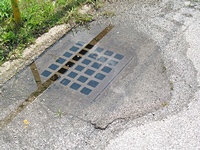
Reduce standing water to get rid of mosquitoes.
Though some species of mosquitoes will travel distances for a blood meal, chances are the ones that are attacking you on your property hatched on your property. Mosquitoes breed in stagnant or slow moving water, where they spend time as larvae and pupae. Even a small amount of standing water can produce swarms of mosquitoes. Broken or clogged rain gutters, old tires, leaky air conditioners or outdoor faucets, boats, street gutters, holes in trees, catch basins, low spots on your property, watering cans and wheelbarrows – anything that has been holding water for over a week is probably producing mosquitoes. When water can’t be cleaned or drained, it should be treated with Bti.
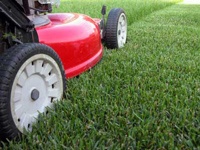
Landscaping can help get rid of mosquitoes.
Mosquitoes roost in shaded, protected areas. Remove low-lying brush or vegetation. Keep shrubs and trees well trimmed and grasses short. This will decrease moisture and increase wind and sun exposure on your property, making it far less hospitable to mosquitoes and other biting insects. As an added benefit, your stock will rise with uppity neighbors, and the lazy ones may just inherit your mosquitoes.
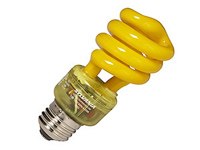
Use bug lights outside and around doors and windows.
Mosquitoes aren’t attracted to all light, just light at certain frequencies. Most people don’t take advantage of this knowledge, and so their homes attract swarms of mosquitoes and other insects every night. These people are forced to enter and exit their homes at break-neck speeds to keep the number of winged intruders to a minimum. Yellow “bug lights”, LED lights, and sodium lamps won’t attract mosquitoes. Changing the lights near doors, windows, and porches is especially helpful. You can find a wide variety of sodium lighting products at Amazon.
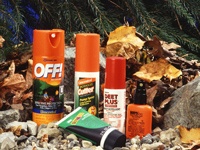
Apply effective mosquito repellants.
Why spray communities with poison when individuals can use repellents? When it comes to getting rid of mosquitoes with repellents, DEET (OFF, MAX DEET, Repel) is the clear choice. It has outperformed other mosquito repellents in lab and field testing conducted by the Center for Disease Control and the Environmental Protection Agency. For those with a sensitivity or aversion to DEET, products that contain picaridin (Cutter, Sawyer Insect Repellent), or IR3535 (Avon Bug Guard Plus Expedition) are reasonable replacements, though they don’t last as long as repellents containing DEET.
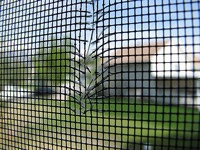
Put barriers between you and the mosquito.
First off you should make sure your home is mosquito proof. If the odd mosquito makes it inside, well, that’s normal. If more than a few are humming around, check all screens, windows, vents, and doors for gaps. Screens can be fixed with a little silicone caulk or screen patches, while door gaps can be remedied with weather stripping. While you’re fixing the problem, you can look into mosquito netting, which can be installed over beds, cribs, kennels, or anything really. If you don’t have a three-season porch and still would like to be relax outside, invest in a screened pavilion or party tent with a bug screen.
Best Natural Mosquito Control Methods
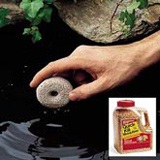
Use Bti products on water that can’t be drained.
Ornamental ponds, water treatments, unused swimming pools, sewer drains, or any water that is impractical to drain can be treated with Mosquito Dunks, Quick Kill Pellets, or any product containing the bacterium Bti (bacillus thuringiensis israelensis). Mosquito larvae feed on protein crystals produced by Bti, and then their guts explode. Bti does not harm fish, aquatic plants, humans, or anything besides mosquito and black fly larvae.
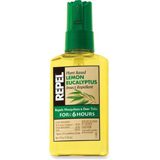
Use natural repellents.
Though DEET is time tested and safe, some people desire mosquito repellents that are a bit more natural. The most popular and effective natural mosquito repellent is oil of lemon eucalyptus, which works as well as low concentrations of DEET. A mixture of 2% neem oil and coconut oil, or just coconut oil extract will also work to some degree. Amazon sells Repel Lemon Eucalyptus repellent in a variety of options.
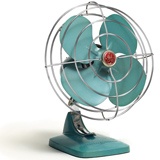
Well-placed fans help.
Mosquitoes need calm conditions for stealing your blood. They won’t be able to bother you if wind speeds are beyond two miles per hour. When Mother Nature won’t supply a breeze, some well-placed fans can keep decks and porches mosquito free. Many outdoor /open air restaurants and bars combat mosquitoes in this fashion.

Wear the right clothing.
Do I want to wear my naughty, butt-crack revealing mankini at all hours, all summer long? Yes. But I don’t. When the mosquitoes are out, I grow demure and put on a few layers. I prefer heat discomfort to mosquito bites and blood loss. A mosquito proboscus (needle on face) cannot penetrate the hide of a nice sweatshirt.
For the adventurous types, there are also clothes designed with biting insects in mind. These bite-proof clothes – sold at sporting goods stores – are often treated with repellents (DEET) or poisons (permethrin). On a closing note, certain species of mosquitoes are attracted to dark colors such as black, blue, and red, which can make mosquito season tough for gang members.
Avoid mosquito prime time.
Dusk, dawn, and during darkness – these are the times when most mosquito species feed. Though not always possible, scheduling your outings around theirs can greatly increase your tolerance of these annoying yet needed insects. As an added bonus, you have fewer altercations with vampires.
What Doesn’t Get Rid of Mosquitoes
Getting rid of mosquitoes is big business, and this business is full of gimmicks, scams, and a swarm of false promises aimed at lightening your wallet. Here are some things that won’t get rid of mosquitoes, but may make them worse:
- Bug zappers: Attract swarms of mosquitoes to your property and kill hoards of beneficial insects. These devices are more for red-neck entertainment than mosquito control.
- Commercial and personal mosquito poisons: Mosquitoes are a force of nature not unlike the weather. Exterminators that offer to spray your yard with residual poisons are basically stealing your money. Indoor bug bombs are likewise ineffective and wasteful. The only useful poisons for getting rid of mosquitoes are those – like permethrin 5% – which are used as repellents on clothing, tents, and fabrics.
- Machines that attract or repel mosquitoes with lights, smells, and sound. The market is rife with these machines. Sound devices that emit certain “mosquito-repelling frequencies” are a farce. Though machines that use light and smells to lure mosquitoes to a trap are getting more sophisticated, they are as yet unproven and very expensive. They attract mosquitoes in your yard to the trap, but they also attract mosquitoes from surrounding areas to your property and you.
- Citronella candles: The tiki torch look may improve the ambiance of your yard, but citronella candles are no better than plain candles, which also produce the heat, moisture, and carbon dioxide that draws mosquitoes away from people.